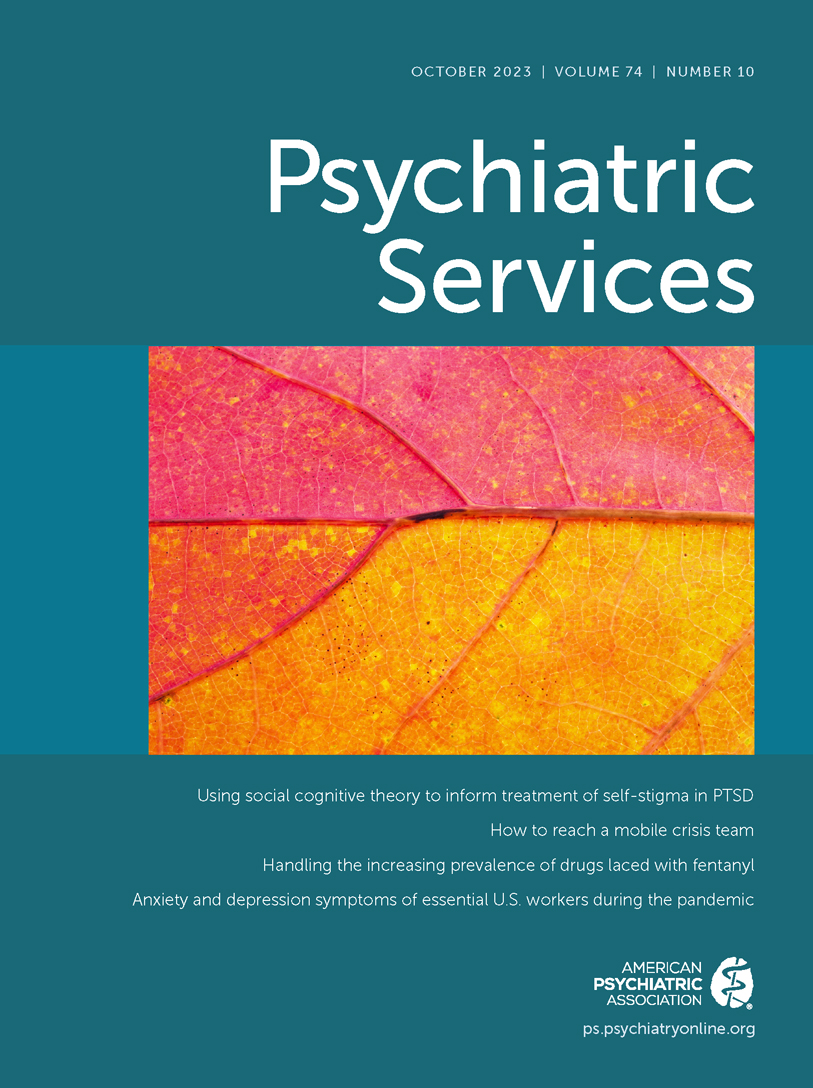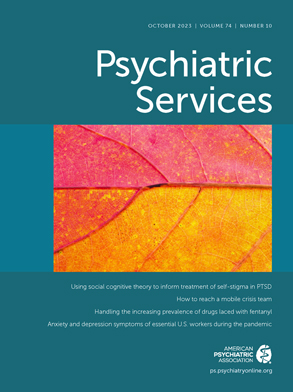Among racial groups, Asian Americans have the lowest percentage of mental health service use, including prescription medication, outpatient services, and inpatient services (
1). Stigma and shame attached to mental illness, low perceived need for services, structural barriers, and lack of belief that services would ameliorate mental health problems contribute to the gap between the need for and the use of mental health services (
1,
2).
Research with African American and Hispanic participants suggests that partnerships between mental health professionals and faith-based organizations may increase service use among people in traditionally underresourced communities (
3). Korean Americans, the fifth largest Asian American subgroup (
4), may particularly benefit from such collaboration, because the Christian church has been pivotal in meeting not only the spiritual but also the social and cultural needs of its community since Koreans began immigrating to the United States (
5). In fact, studies have shown that Korean Americans often seek counsel from church leaders rather than from traditional mental health professionals when they have mental health concerns (
5,
6).
Empirical Investigation
Through a qualitative study, we update the current literature by exploring the perspectives of clergy members who serve later generations of Korean Americans. Our goal was to gain a better understanding of their congregants’ perceived mental health needs, potential barriers to mental health treatment, and ways mental health providers can better collaborate with church leaders to serve this community.
We conducted 16 semistructured key informant interviews with male Christian clergy members in a western region of the United States via snowball sampling. Participants had to be current or former clergy members serving predominantly English-speaking congregations of later-generation Korean Americans. Participant characteristics are summarized in
Table 1. The University of California, Los Angeles, Institutional Review Board determined that this study met criteria for an exemption from review.
All interviews were conducted in English by one author (S.H.) and lasted 45–90 minutes. (The semistructured interview guide is included as an online supplement to this column.) The same author’s open coding of the transcripts identified four broad themes: the role of the church in addressing the emotional and mental health concerns of its congregants, the primary perceived emotional and mental health needs of later-generation Korean Americans, barriers to addressing those needs, and steps that church leaders and mental health professionals can take to better serve this community.
After the initial codebook was developed, a different author (H.S.L.) independently coded two of the transcripts. Both authors (S.H. and H.S.L.) then discussed the codes, reconciled discrepancies, and revised the codebook. One author (S.H.) used the finalized codebook to code all transcripts. To ensure consistency, one-third of the remaining transcripts were randomly selected, independently coded by one author (H.S.L.), and checked for reliability. The interobserver reliability for these codes, calculated by using Cohen’s kappa, ranged from 0.66 to 1.00, with an average of 0.97 across all twice-coded transcripts.
All participants expressed their belief that congregants should receive care from clergy members or mental health professionals for their emotional and mental health needs. Most participants believed they should play an important role in providing mental health guidance and counsel for their congregants. However, they recognized their own limitations and felt that collaboration with professional mental health providers is key to meeting congregants’ mental health needs. One participant, an outlier, felt that the church’s primary role should be spiritual and that the clergy is not fully equipped—by calling, staffing, or training—to directly provide mental health services.
Nearly all participants identified relationship struggles and conflicts (e.g., between couples, family members, and friends) as top concerns and sources of distress for congregants. Almost half (N=7) of the participants noted that a strained parental relationship was a significant issue not just for youths but also for adult congregants with their own parents. More than one-third (N=6) of participants commented on their church members’ continued struggles, even as adults, stemming from a perceived love deficit, especially from their immigrant fathers.
Many of the first-generation Korean fathers were absent from their [children’s] lives. For good reasons, because I think their love language for their children was coming [to this country], sacrificing a lot, working hard, and trying to provide for them as a family. . . . But I think the drawback was that a lot of times, the children felt like they didn’t have a relationship. Add to that the culture gap, the generational gap. Parents in the first generation didn’t know how to speak and really communicate with their children who grew up in . . . America. (participant 8)
Addiction (e.g., to alcohol, drugs, gambling, or pornography) was the second most frequently cited issue, followed by concerns about academics, careers, and the future. Participants also noted that congregants struggled with issues of cultural identity, domestic violence and abuse (in congregants’ childhood or the present), depression, suicide, and a desire for community.
Participants most frequently identified the traditional Korean shame culture, in concert with the stigma surrounding mental health issues, as the largest barrier keeping congregants from discussing emotional or mental health concerns. They also indicated that congregants’ use of treatment was hampered by low mental health literacy, a lack of recognition of the need for help, and fear of seeking help.
Because we come from an honor-shame culture, it’s hard for parents to admit that there are issues. It’s hard for [children] to admit that there are issues in the home. Because what you’re essentially doing is . . . making you and your family vulnerable to scrutiny. And that . . . is something we have a very big issue with, culturally—with being exposed. So we do a lot of things in secret and darkness. And when [a mental health problem] gets revealed later, it’s usually the worst of the worst because we never got help for it. (participant 12)
All participants indicated that they felt inadequately equipped to address the emotional and mental health needs of their congregants. Almost half (N=7) identified as a serious barrier their lack of knowledge about available resources and the means to utilize them. This lack of knowledge was especially common among participants from smaller churches, young participants who were new to the ministry, and those serving later generations within a primarily immigrant congregation.
All participants expressed a desire for more educational opportunities for themselves, their staff, and other church leaders to learn about the mental health field. They also wished to know about available resources, specifically local practicing psychiatrists. Many prioritized raising awareness about mental health and breaking down stigma with their congregants. All but one participant reported having either preached about or discussed in other settings emotional and mental health concerns. Three-quarters of participants (N=12) had experience referring a congregant for professional help (although not always successfully), and most reported a positive experience with the process. One-quarter (N=4) of participants wanted to hire or were actively in the process of hiring Christian mental health professionals as consultants who could also provide mental health care for congregants.
More than one-third (N=6) of participants mentioned that some of their colleagues may lack trust in the mental health field. Participants expressed concern about how mental health providers view the Christian faith and how that perception may affect what is conveyed to patients about the role of faith and the church in their lives. Many also spoke of their hesitancy to refer a congregant to someone they did not know or trust, and they expressed a desire for mental health professionals to build relationships with local churches and their leaders. Different participants hoped that mental health professionals would share congregants’ Christian faith or Korean heritage or that such professionals would be knowledgeable about the church or the unique struggles of Korean Americans.

